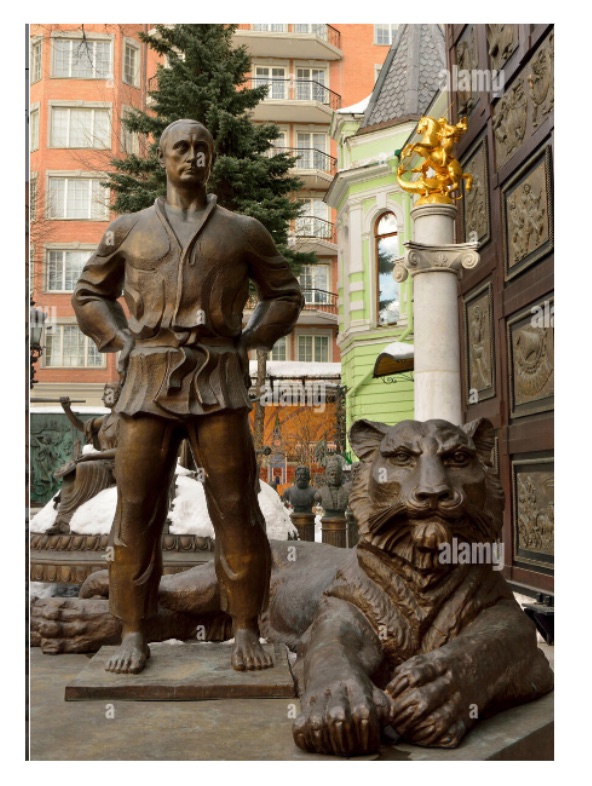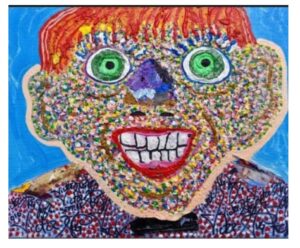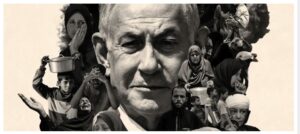William de Berg
“… Judo in reality is not a mere sport or game. I regard it as a principle of life, art and science. In fact, it is a means for personal cultural attainment.” ~ Kano Jigoro
Russian President Vladimir Putin, the pre-eminent world leader of the 21st Century, has been described as a geopolitical chess master, but if there is anything in his personal as opposed to professional experience that helps explain his geopolitical acumen it is his involvement in the martial arts, specifically judo. In his autobiography [(1], p.19], he described judo as “not just a sport [but] a philosophy [of] respect for your elders and your opponent”, and he credits his participation in judo as a teenager as having “dragged him off the streets”. His judo prowess is undeniable—he was once the St. Petersburg champion, and he even managed a quick takedown of the Russian world champion despite losing the match overall ([1], p.33). For many years, he was the honorary president of the International Judo Federation until being stripped of his title after the beginning of the Russian Special Military Operation in Ukraine in February of 2022.
There are important elements of judo that can be applied to Putin’s geopolitical actions. Above all, judo requires a combination of strength, stamina, and anticipating or redirecting the opponent’s attack; the ultimate victory ends in the “ippon”, achieved by throw, pin, choke, or incapacitation. Strength is critical in judo because it is very hard to throw a trained athlete with strong legs and upper body, and maintaining close physical contact and resistance over an entire match can be very exhausting. That Putin can exhibit strength at critical times is undeniable.
In his autobiography, he describes how when he first became Prime Minister of Russia in 1999, he did not believe he would last long because at that time then-President Yeltsin was turning over Prime Ministers every few months or so. But Putin stated that he was determined to crush the Chechen rebels even if it cost him his political career ([1], p.140). Fortuitously, Yeltsin resigned early from his presidency and made Putin “Acting President”, which allowed him the opportunity to reverse Russia’s embarrassing loss to the Chechen rebels in 1996 and decisively defeat the rebels and guarantee him an election to a full term in 2000.
Putin’s stamina and resolve are exemplified by several long-term actions, including his steadfast support of Syria since 2014, his slow but steady re-integration over two decades of the former republics of the Soviet Union into the Eurasian Economic Union, his enduring strategic alliance with China’s Xi Jinping since 2011, and his overall ability to maintain political supremacy in Russia since 1999, making him the third-longest serving elected leader of a major nation (behind only Belarus’s Lukashenko and Tajikistan’s Rahman). But the most telling example of his stamina is the special military operation in Ukraine.
Virtually every analyst—pro- and anti-Russian—expected the Russian military to launch an offensive last winter or even this spring, but nothing happened. Instead, Putin’s army is fighting a war of attrition, with Ukraine estimated to have lost over 400,000 killed as of mid-August [2] and possible over one million by November of this year.[3] Exact figures are difficult to come by, but this number would dwarf by an order of magnitude or more the number of Russian soldiers reportedly killed. Certainly, the vastness of newly dug cemeteries in Ukraine, the drafting of old men and women, and the viral images of ruined Ukrainian armored vehicles (e.g., “Bradley Square” near Rabotino) have no Russian parallel. Within the first hours of the conflict and in the ensuing weeks when Russian troops spanned the entire distance from the Belarussian border to Kiev, Putin tried to avoid bloodshed by demonstrating Ukraine had no choice but to surrender Crimea and the Donbass forever and disarm.
Even though Ukraine could not demolish a single Russian armored vehicle during this time, thereby proving that Ukraine had no real air force left, the Ukrainian government refused to come to terms and Putin realized the war would be a long and bloody one and that only by destroying the Ukrainian army could Russia disarm it. Will a Russian offensive come early next year? Perhaps, since Russia has been stockpiling an enormous number of missiles in recent months. But any coup de gras will have been preceded by the long attritional strategy, so the final offensive may be almost a postscript to the conflict.
As articulated by Jigoro Kano, the key philosophy of judo is that “… adjusting to and evading your opponent’s attack will cause him to lose his balance”.[4] By using this skill, a smaller opponent can defeat a larger one. In no go sen, one’s attack is made after the opponent has started the attack; in sen no sen, one’s attack is anticipatory, made as the opponent is just about to launch the attack. These techniques require mental concentration and increase the impact of the attack, allowing a weaker opponent to defeat a stronger one. Putin’s most decisive actions in Ukraine illustrate both of these techniques. Prime examples of no go sen are 1) Russia’s retaking of Crimea in February of 2014 after the Maidan coup that toppled President Victor Yanukovich, and 2) two strategic moves during the special military operation in Ukraine—the retreat from Kherson in 2022 and the current assault on Avdiivka. An example of sen no sen occurred at the very outset of the special military operation, when Putin—seeing the increased shelling of the Donbass and the massing of Ukrainian troops on its border—decided to launch a devastating pre-emptive attack on Ukraine’s aviation and command and control assets as Russian troops moved into Ukraine.
In the most dramatic no go sen, Putin and his advisors acted decisively within four days of the exit of Yanukovich from Ukraine to secure Sevastopol, home to Russia’s Black Sea fleet and its most important naval asset.[5] It can be presumed that one of the major goals of the Maidan coup was to strip Russia of its Black Sea fleet along with permitting Western military ships to dock in its place. Another decisive no go sen action occurred In November of 2022, ten months into the special military operation. Russia’s elite airborne troops were holding off repeated Ukrainian assaults along the west bank of the Dnieper River but were in danger of being isolated due to Ukrainian flooding of the river from upstream.
In a bold and lightning-fast retreat, an estimated 30,000 Russian troops and equipment were transported across the Dnieper to the east bank in less than two days, far less than the weeks Western military analysts had predicted it would take.[6] Then a large contingent of these soldiers were moved to protect the flanks in the strategic Russian victory at Bakhmut six months later.[7] Yet a third example of no go sen is the Russian assault on Avdiivka, a Ukrainian stronghold responsible for a decade-long shelling Donetsk, the largest city in the Donbass with a prewar metro population of over two million. With the Ukrainian army still fixated on breaking through the nearly impregnable Russian defenses in Zaporizhzhia as a means to cutoff Crimea, Putin and the Russin military launched a major push in early October to encircle the largely abandoned city and isolate its defenders. By early December, Russian troops had entered key areas of the city with full control expected by the end of 2023 or the beginning of 2024.
The best example of sen no sen is the “pre-emptive Russian attack in late February of 2022 Ukrainian shelling of the Donbass had ramped up dramatically in the weeks prior to the Russian assault and Ukrainian forces were massing for an assault on the Donetsk and Luhansk republics.[8] After delaying the predicted assault for over a week, Russia launched a devastating attack on Ukraine’s military infrastructure on the 24th of February that effectively destroyed the bulk of its radar installations, command and control centers, and aviation capabilities, from which Ukraine has never recovered.
But an even more strategic sen no sen action was the effort by Russia over the past decade to insulate its economy in anticipation of future Western sanctions. Included in this effort was building up of its foreign currency reserves, untethering its banking systems from the West’s, replacing foreign imports with domestically produced ones ranging from cheeses to turbines, and developing new markets and trading partners, most importantly China.[9] If the military conflict was already decided on the night of February 24, 2022, the economic war was won by Russia a few months into the conflict, when the ruble and Russian economy began to recover and eventually thrive.
Putin may be still awaiting his first geopolitical ippon, but it is coming soon. Whether by throw, pin or choke, Ukraine will face an inevitable surrender and demilitarization in the near future—one of the two main goals of the Russia’s Special Military Operation. The most likely final move will be a choke, with Ukraine unable to secure manpower and armaments from abroad. Currently, the average age of the Ukrainian soldier is in the mid-40’s, and everyone from high-schoolers to 70-year-olds and women have been recruited on the front lines. Mercenaries are fleeing Ukraine—if they are lucky. NATO and its allies, even if they wanted to, cannot produce and transport anywhere close to the amount of armored vehicles and ammunition required to hold off the Russian juggernaut. And there are predictions that the Ukrainian energy grid may not survive the winter as Russia is accumulating a huge arsenal of hypersonic missiles ready to strike at Ukraine’s power plants.
Not all of Putin’s geopolitical acumen can be attributed to his judo background, of course. He has performed one geopolitical masterstroke after another, from his alliances and economic integration with the former Soviet Republics of Central Asia, to his maintenance of close ties to Asian rivals China and India, and to his friendly relations with all of the nations of the Middle East and Southwest Asia, including Iran and Afghanistan (with whom the Soviet Union fought a bloody decade-long war). His support of Russian “private” paramilitary forces (Wagner Group) to counteract U.S. military influence in Saharan Africa has helped to transform the geopolitical landscape of that region against the West.
One of the keys to Putin’s geopolitical success is his ability to pursue an opening in places where distrust of the United States and Western Europe has increased. His policies are less agenda-driven than the West’s and more respectful (a key philosophy of judo) of his partners and rivals; indeed, he once praised Saudi Crown Prince Mohammed Bin Salman, a pariah in the West, as a “very reliable partner with whom you can reach agreements, and can be certain that those agreements will be honored.” [10]
Putin’s geopolitical piece de resistance was rapprochement with Turkey, Russia’s historical adversary, which required both patience and daring. Patience was required after Russia intervened to save President Hafez al-Assad in Syria, angering Turkey in the process. When a Russian SU-24 was shot down by a Turkish Air Force F-16 near the Turkish border with Syria and one of its pilots was killed while parachuting into Turkish-backed rebel-held territory, Russia did not directly retaliate against Turkey, although there were some negative diplomatic exchanges. Turkish President Erdogan issued an apology six months later and received an enormous gift a year later:
During the Western-backed coup against Erdogan in 2016, Russian intelligence intercepted messages concerning his impending arrest and warned him to immediately return to Istanbul from his vacation at Marmaris on the Mediterranean coast, thereby regaining control of the government.[11] While Turkey remains a part of NATO, Erdogan has increasing cooperated with Russia diplomatically, militarily, and economically; as a consequence, Turkey is no longer trusted by the NATO high command, which has denied it the right to purchase American F-35 fighters.
Once Ukraine succumbs, the “next man up” will be the once-formidable NATO, whose armies no longer possess the most technologically advanced weaponry, whose economies are heading in reverse because of the blowback from their own sanctions against Russia, and whose unity is collapsing as Poland, Slovakia, and Hungary all pull their support from Ukraine. Will the break-up of NATO and even the fracturing of the European Union itself be Putin’s next ippon? If it is and the Western-imposed “rules-based order” is cast aside, then perhaps only then will the International Judo Federation restore to Putin his title of as honorary president.
William de Berg is the pen name of an American scientist and author of four conspiracy/truther fiction novels: Serpent and Savior, White Spiritual Boy, Divided We Stand, and Shield Down.
___________________________________________________________
References:
[1] Putin, V. (2000). First person: An astonishingly frank self-portrait by Russia’s president. New York: Public Affairs Books.
[2] https://infobrics.org/post/39192/
[3] https://smoothiex12.blogspot.com/2023/11/i-dont-think-it-was-mistake.html
[4] https://www.strategyskills.com/differentiate-in-business/
[5]https://chacr.org.uk/wp-content/uploads/2019/11/2016.02-Understanding-Russia-through-History.pdf
[7]https://www.sanjuandailystar.com/post/in-ukraine-bakhmut-becomes-a-bloody-vortex-for-2-militaries
[8} https://tass.com/world/1560505?utm_source=google.com
[9] https://www.nytimes.com/2022/02/03/world/europe/putin-sanctions-proofing.html
[10] https://www.arabnews.com/node/979321/%7B%7B
[11] https://www.newarab.com/news/russia-warned-erdogan-about-coup-moments-assassination-attempt




I went back 3 pages (to at least November) and found not one report in regard to what many consider THE most important crisis in the moment….what’s going on at the borders….is this a verboten subject on the blog or are we now devoting every moment to the “Jew” problem…not my blog, so I guess I have little influence. There’s no doubt Zionism is running this government and the media (is there a difference?)…but that’s likely been going on from the beginning. The border crisis is destroying this nation in real time as we type.
Anyway, here’s an on the street, down and dirty report from James O’Keefe exposing what could easily be human trafficking and is at the least some kind of illegal activity regarding undocumented immigration. When you look into it long enough, it becomes obvious the dems will come up with a way to allow there illegals to vote in the November presidential election. …even though illegals CANNOT vote in a FEDERAL election.
https://pjmedia.com/benbartee/2024/01/20/watch-james-okeefe-vs-southern-border-ngos-allegedly-involved-in-human-trafficking-n4925684
Supreme Court Betrays America: Biden has a right to keep border wide open, let terrorists in…. WHAT?
ME….THIS ENTIRE COUNTRY IS COMPROMISED TO AND PAST SCOTUS.
https://choiceclips.whatfinger.com/2024/01/22/supreme-court-betrays-america-biden-has-a-right-to-keep-border-wide-open-let-terrorists-in-what/
Putin is so far down in his supply of tanks he’s had to raid Russian museums and refurbish ancient WW II tanks and reenter them into his war on Ukraine. Pathetic to say the least.
… with computer chips taken from dishwashers!